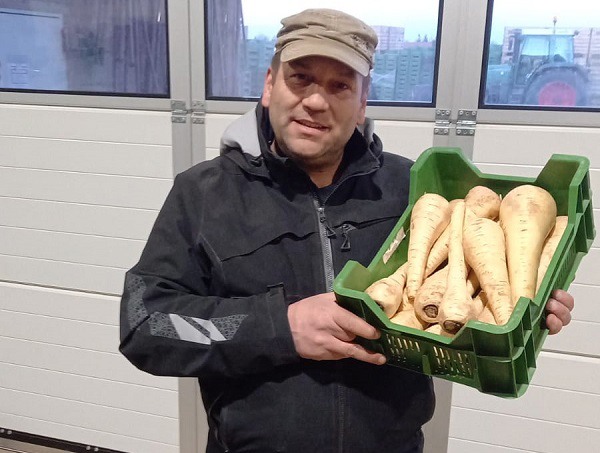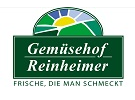Just over four weeks ago, Kai Reinheimer, owner of Gemüsehof Reinheimer in Ginsheim, began harvesting and selling his parsnips, which are stored in cold storage at 1 degree. "When needed, they are freshly washed, processed and sold accordingly. The season should continue for about two months," Reinheimer tells us. He says he sells about 300 kg per week to food retailers and directly to individual customers within a maximum radius of 60 km.

"The demand has remained relatively stable, which is also due to the fact that we have a lot of regular customers. The quality of parsnips is very good, thanks in part to the mild winter. The summer was not too hot and it has also been sufficiently humid, which is why both the yield and the quality are good," says Reinheimer. Reinheimer offers the parsnips loose in 3 kg and 5 kg boxes.
His farm has its own vehicle park of five trucks. Not only the pure operating costs, such as diesel or electricity, but in all possible price sectors, large increases have been with. "Both seed and fertilizer have become more expensive, especially as labor costs will continue to rise. The market is also highly competitive. With a business like ours, which offers more than 80 crops, you also need correspondingly skilled people who know how to handle the respective products or how to handle any machinery," Reinheimer points out. He sells the goods directly to retailers under his own name, not through an intermediary. "We specialize in supplying end customers and food retailers. Industry is not one of our customers."
Price increases do not benefit producers
Compared to goods from Germany, Reinheimer observes extreme price jumps when purchasing foreign goods. "While a pallet from southern Italy used to cost 35 euros, today it costs between 150 to 175 euros. So with 36 pallets per truck, a truck delivery costs around 5,000 euros." According to Reinheimer, long-term contracts that specialized companies have to enter into in order to be able to guarantee the safe acceptance of goods also pose a further problem. "Some of these were negotiated last year. If these contracts are still valid and can be fulfilled, that of course means that there is also some pressure on the market. Apart from that, the amount of cheap goods in Germany is too large," Reinheimer notes.
"It is our goal to move into the direction of organic production, whether it's organic fertilization, nets for insect control, mechanical weed control, etc. But there are extreme weather periods or the like where we also have to deliver produce accordingly and can't just do nothing."
Gemüsehof Reinheimer is not a member of any association and focuses on the end consumer. "However, this also means that the quality standard as well as the freshness must always be at the highest level. It also means that we are constantly in focus with our name. If you can keep to that and also offer yard sales directly, you also don't have to rely on quality seals or the like, because customers trust us. They know what they are getting with us. Earning that trust is not easy. But it's even harder to be able to maintain that standard."
For more information: Kai Reinheimer
Kai Reinheimer
Gemüsehof Reinheimer
Unter der Ruth 54
65462 Ginsheim
Tel.: +49 6144 - 938500
info@gemuesehof-reinheimer.de
gemuesehof-reinheimer.de
